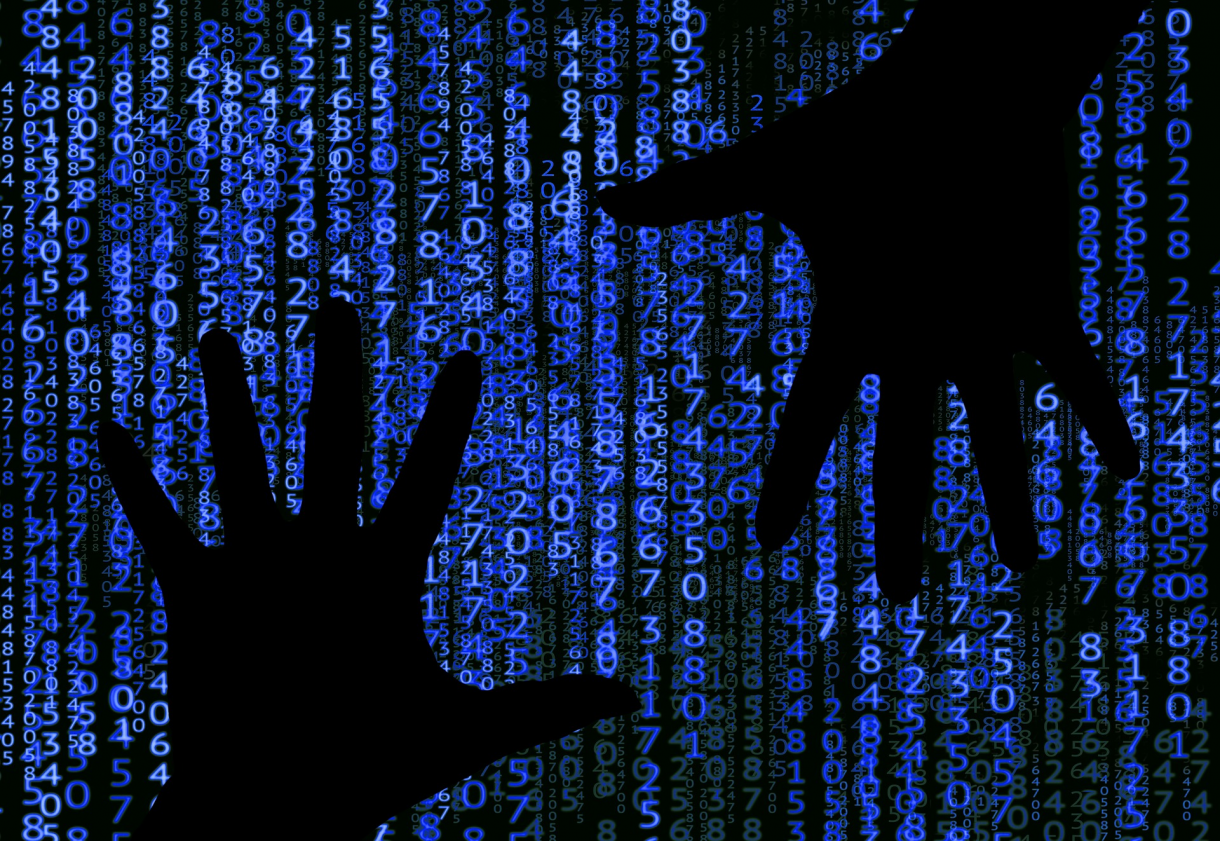
Share this Post
From Human Rights to Digital Rights
The term “digital rights” describes human rights in the digital age. The evolution of the term can be traced back to Articles 3, 12, 19, and 27 of the 1948 Universal Declaration of Human Rights, which deals with information-related rights such as the right to privacy, the right to information, freedom of speech, and the right to fair use. Yet digital rights and achieved salience only during the UN World Summit on Information Society (WSIS) in 2003 and 2005 (Klein, 2005). In the years that followed the WSIS, the digital rights discourse gained ground in internet governance debates, yielding national and international proclamations, declarations, charters, and legislation dealing with the issue (Padovani and Santaniello, 2018; Wagner, 2011). Analysis of these documents reveals a loose tripartite cluster (Daskal, 2017) that includes the principal rights (though these are not the only rights):
1. Access to the internet (technology and content) – The internet should be open and universally available. It should be free from filtering or traffic, and any means preventing access that is not end-user controlled is to be considered a form of censorship.
2. Freedom of speech – Everyone should have the freedom to share and publish information online without interference. This freedom includes rights such as the right to diversity, the right to create and publish creations, the right to initiate any association, and the right to seek employment and to work through or by means of the internet.
3. Right to privacy and safety – Everyone should have freedom from state surveillance and surveillance capitalism, the right to secure connections, the right to data protection, and the right to control personal data collection, retention, processing, disposal, or disclosure.
Such formulations leave much room for interpretation regarding the definitions, boundaries, and scope of these rights. Therefore, it is not surprising that in each country today, there is ongoing deliberation involving the state, private internet companies, and national civil society organizations that advocate for digital rights. These deliberations eventually determine the digital rights model of each state, which differ from one another. The most famous models are the US model and the Chinese model. The US model of digital rights is a model that supports free internet flow without regulation or censorship, but does not necessarily believe that the state should provide internet access to citizens. At the same time, this model is controlled by surveillance capitalism and state surveillance to some extent. On the other hand, the Chinese model is characterized by heavy surveillance under which citizens have no right to privacy or freedom of speech. In between, however, there are other national digital rights models, one of which is Israel, which is the focus of this spotlight.
Digital Rights in Israel
In what follows, this Spotlight will briefly explore the state of each right (access, speech and privacy) in Israel, although there is enough to consider for each of these rights to be the focus of a separate piece.
Access – Unlike net neutrality, which is protected by Israeli law, the right to internet access has never been recognized as a fundamental human right in the State of Israel. This is not an unusual state of affairs; only a few countries have sought to incorporate this issue formally. For example, in Finland, each citizen has a legal right to access 1Mbps and in France, the Constitutional Council declared that access to the internet is a fundamental human right. Despite the lack of any formal legislation in Israel, the biggest telecommunications companies (Bezeq and Hot) are obligated by the universality principle to employ the national telecommunication network to enable equal access to everyone in Israel (this obligation does not apply to smaller companies, such as Partner). In practice, however (due to a limited telecommunication infrastructure), in peripheral areas in Israel, people cannot always enjoy an uninterrupted and reasonably performing internet connection.
The lack of serviceable infrastructure, however, is not the only internet access-related obstacle in Israel. Another related problem is the issue of speed. This, in turn, ties in to the issue of a much broader policy or to be precise, the lack of a specific policy. At the beginning of the 2000s, Israel’s Minister of Communication instigated the nationwide deployment of ADSL infrastructure (copper cables). For a while, this infrastructure was sufficient. However, as the population grew and technological innovations came to demand more bandwidth, the infrastructure began to buckle under the strain. This became critical in March 2020, when the global pandemic forced people from all over the world to stay at home. Work, school, entertainment, or communicating with family and friends all became dependent on the internet. The result was an overload on the Israeli internet infrastructure, which prevented people from accessing the Web. There was an urgent need to upgrade the system by switching from copper to fiber optic deployment, which is the best in terms of speed and connectivity. For this reason, over the past year, the Ministry of Communication accelerated the work, paying attention also to peripheral areas (the north and south of Israel) and underprivileged populations (mainly Palestinian Israelis and ultra-Orthodox Jews). Now it is simply a question of when Israelis will notice the change when surfing the web and whether it will indeed provide sufficiently decent access to the internet.
Speech – The freedom to share and publish information online without interference can be manifested in several ways, from the ability to write comments online or on social media platforms to the operation of an entire website. Over the last two decades, several pieces of legislation attempted to block certain websites, but were met with firm resistance from civil society organizations (e.g., ISOC-IL) and academia. This was the case with the failed legislation of the so-called “Porn bills” (2016-2018), two bills that either instructed ISPs (Internet Service Providers) to block websites that contain violent or sexual images or rewarded ISPs for blocking the internet access of users whose websites had violent or sexual images. The only bill that transitioned into law was the Website Blocking Law (July 2017), according to which the police (following a court ruling) could unilaterally block access to websites on which significant crimes occur, such as pedophilia, drug dealing, and gambling.
Another related initiative was the Facebook Bill (2018), which enabled the state, through a court order, to instruct Facebook to remove posts perceived as constituting incitement. The bill was on the point of becoming law but was withdrawn by the Prime Minister at the last minute. Finally, as recently as January 2022, another official legislative initiative, which aimed at regulating or censoring freedom of speech on social media platforms, came to life in the form of The Bill for Protecting the Public from Dangerous Publication on the Social Media (2022). This bill enables the court in Israel to instruct users (including websites and social media operators) to remove content which might compromise a person’s safety or the public safety. This bill has not yet become an official law.
At the same time the attempts of the Israeli legislature to regulate the social media are also manifested in the relationship between the Israeli government and the social media platforms. It was reported that Facebook and the Israeli government have agreed to coordinate efforts and staff to monitor and remove incitement content online. Still, not much is known about this agreement or the procedures behind the scenes (Kaye, 2018). For example, it was made public that the Shin Bet reached out to social media platforms to ask them to remove posts that were perceived as attempts by foreign entities to influence the results of Israeli elections. The Shin Bet refused to specify the criteria for determining whether a post qualified as such an attempt.
In another instance, in May 2021, Haaretz reported that given the unrest on the streets following riots in Jerusalem and rocket fire from Gaza, Israeli PM Benjamin Netanyahu proposed blocking TikTok to calm the situation. The initiative was rebuffed, and technology experts subsequently pointed out that such a move was at the time not technically possible in Israel. Nevertheless, the mere suggestion serves as a warning sign as to how some Israeli leaders perceive and understand social media platforms and freedom of speech on these platforms.
Privacy – As a democratic state, Israel protects the legal right to privacy in Israel in several ways. First, according to Article 7 of The Basic Law for Human Dignity and Liberty, 1992, which is part of the constitutional law of the country, everyone is entitled to privacy; this Basic Law is an elaboration of The Protection of Privacy Law, 1981 which deals exclusively with the limits of the right to privacy in Israel. Second, several specific laws deal with the right to privacy, among other issues, including The Wiretap Law, 1979; The Basic Law (The Judiciary), 1984; Patients’ Rights Act, 1996; The Criminal Procedure Law (Enforcement Powers – Body Search of Suspect), 1996; The Freedom of Information Act, 1998; The Prevention of Sexual Harassment Law, 1998 and The Genetic Information Law, 2000. Finally, in 2006, the Israeli government established The Israeli Law, Information, and Technology Authority. It was tasked with strengthening the protection of personal data and tightening enforcement in cases of privacy violations. It is concerned with issues such as database protection, electronic signatures, and credit card information. This institute later evolved into The Privacy Protection Authority.
On the other hand, a long list of laws, rules, and regulations regularly violate citizens’ privacy, mainly in the name of safety and security. For example, according to The Identity Card Carrying and Displaying Law, 1982, all adult citizens are obligated to carry their government-issued ID card and present it to any representative of the police or military on demand, even without probable cause. The amendment to The Criminal Procedure Law (Enforcement Powers – Communication Data), 2007, allows security agencies to acquire citizens’ private communication data from internet and mobile service providers without any judicial oversight. Finally, in recent years there has been a growing stream of legislative initiatives ostensibly designed to protect Israelis, at the cost of violating citizens’ privacy. Examples include the biometric database and the Shin Bet tracking of the Covid-19 outbreak (an issue which surfaced again in November 2021). In addition, other laws were created that violate citizens’ privacy in Israel but not necessarily for the sake of safety and security. Such is the case of the credit score database (2019), which enables gathering information about each citizen’s financial abilities, which would eventually lead to the creation of a personal financial profile.
In response, most of the legislation encountered pushback from civil society organizations, as had happened with issues such as freedom of speech. Furthermore, it led to the establishment of two unique civil society organizations: the Israel Digital Rights Movement and Privacy Israel. These organizations campaign against such legislative initiatives (to varying degrees of success), in the public sphere and the political and judicial arenas. Their campaigns against the biometric database and state surveillance legislation during the Covid-19 outbreak are the most salient examples to date.
One last note on freedom of speech restrictions and privacy violations relates to the dangerous interaction between the two. This interaction manifests, for example, in the monitoring of social media platforms by Israel security services. Although little is known about the extent of such practices or their aims, the general understanding is that monitoring is essential for the purpose of national security. However, it does have the potential to create a chilling effect on freedom of speech online. Citizens who know that they might be monitored by the Shin Bet might fear expressing their ideas, thoughts, and reflections if they do not align with the general political agenda of the government, especially given the attitudes of some political leaders in Israel.
Where Do We Go from Here?
In his analysis of the traditional media system in Israel, Perri (2012) defines Israel’s media system as the “almost” system. Perri argues that the never-ending conflict between Israel and the Palestinians has prevented Israel from developing a genuinely liberal media system – a media system devoid of state interference and one whose members follow professional journalistic values and norms. Therefore, Perri concludes, as long as the conflict continues, the Israeli media system will remain in a state of “almost” or “in-between.” But what about the Israeli digital rights model? How should such a model be characterized in comparison to other possible models of digital rights?
On the one hand, net neutrality as well as access to the internet are perceived as part of the state’s obligations to its citizens both formally and informally. On the other hand, there is a growing trend of harsh state laws concerning privacy and freedom of speech. While freedom of speech is usually protected, the same cannot be said about privacy, despite the efforts of civil society organizations. It seems that even today, privacy in Israel is “an unaffordable luxury that is willingly, unquestioningly surrendered and sacrificed” (Ribak, 2003).
From a broader perspective, the Israeli model of digital rights can be defined, in accordance with Perri’s ideas, as the “in-between model” that balances embracing social responsibility with the fear of loss of control, and finds a middle ground between enabling people to express their views and constantly monitoring their behavior. This model can be defined as a defensive semi-liberal model. According to this model, the state still plays a significant role in the digital rights landscape by providing access to the internet, defending net neutrality, and enabling people to express their views and opinions. At present, though, in many ways, the state operates from a defensive position, using old-fashioned mechanisms of control such as monitoring its citizens and their actions online and creating databases. In response to this defensive stance, civil society organizations have some power, but do not yet have enough resources and capacity to challenge the state or the tech companies. The question, therefore, is: When – if ever – will we see a clash between this semi-liberal defensive model and the “start-up nation” that Israel aims to become?
References
Daskal, E. (2017). “Let’s be Careful out There: How digital Rights Advocates Educate Citizens in the Digital Age.” Information, Communication & Society, 21(2), 241-256.
Kaye, D. (2018). Report of the Special Rapporteur on the Promotion and Protection of the Right to Freedom of Opinion and Expression. UN General Assembly: Human Rights Council
Klein, H. (2005). “Understanding WSIS: “An Institutional Analysis of the UN World Summit on the Information Society.” Information Technologies and International Development, 1(3–4), 3–13.
Padovani C., & Santaniello M. (2018). “Digital Constitutionalism: Fundamental Rights and Power Limitation in the Internet Eco-system.” International Communication Gazette, 80(4), 295–301.
Perri, Y. (2012). “The Impact of National Security on the Development of Media Systems: The Case of Israel.” In D. C. Hallin and P. Mancini (Eds.), Comparing Media Systems Beyond the Western World, 11–25). New York, NY.
Ribak, R. (2007). “Privacy is a Basic American Value: Globalization and the Construction of Web Privacy in Israel. Communication Review, 10(1), 1-27.
Wagner B (2011) “Freedom of Expression on the Internet: Implications for Foreign Policy.” Global Information Society Watch. Available at http://giswatch.org/en/freedom-expression/freedom-expression-internet-implications-foreign-policy.
The opinions expressed in this text are solely that of the author/s and do not necessarily reflect the views of IPPI and/or its partners.
Share this Post

The Good Street: A New Framework for Sustainable Mobility and Urban Design
As cities continue to grow in popularity and size, an inevitable tension between two key urban features has…

State support for energy efficiency in buildings: A view from Germany
One of the most influential European practice schemes to support energy efficiency investments in the building sector with…

Containing authoritarianism in the digital age: Platform governance in view of Germany’s constitutional order
Authors: Martin Fertmann & Jan Rau Current Challenges in Governing Digital Spaces Terror attacks in Christchurch and Halle…
